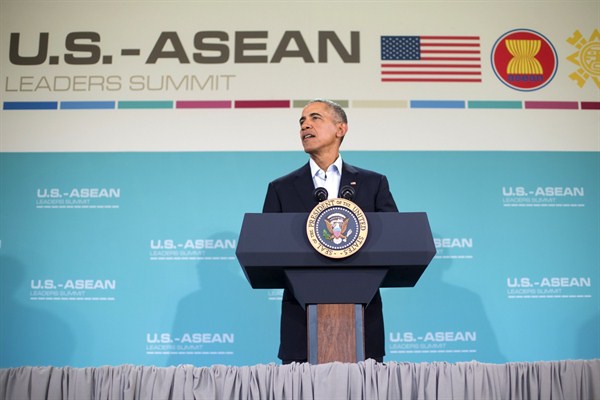The growing closeness between the United States and the Association of Southeast Asian Nations (ASEAN) sends some very mixed messages. The California venue for last week’s first-ever U.S.-hosted summit with ASEAN heads of state—the Sunnylands Resort at Rancho Mirage—seemed to illustrate the essential confusion: Is the relationship bright and hopeful, or just illusory?
Prior to the summit, U.S. State Department officials were at pains to declare that it was “not about China,” which became more difficult to maintain with the revelation, late in the summit’s proceedings, that Beijing had placed surface-to-air missiles on an island in the South China Sea. Still, attendees showed a remarkable ability to not invoke the dragon in the room, by failing to issue any unified censure of China at the summit’s conclusion, as some had been expecting.
The declaration they did issue stressed that the U.S. and ASEAN were seeking to establish a “rules-based order” in the Asia-Pacific. So far, progress on that has been most notable economically, where the massive Trans-Pacific Partnership (TPP) trade deal is facing its final hurdle of ratification by national legislatures.

